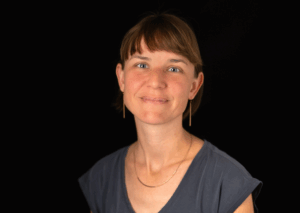
Florian Butollo has been Professor of Sociology of Digital Transformation and Work at Goethe University since March 2025. From April 2024 to February 2025, he served as Visiting Professor of Sociology of Digitalized Work at TU Berlin.
From November 2017 to March 2023, he headed the research groups “Working with Artificial Intelligence” and “Working in Highly Automated, Digital-Hybrid Processes” at the Weizenbaum Institute for the Networked Society in Berlin.
He is an associate researcher at the Weizenbaum Institute and at the WZB Berlin Social Science Center, where he leads research projects on “Generative AI in the World of Work” (GENKIA, funded by the BMAS think tank Digitale Arbeitsgesellschaft), “Digital Business Model Innovation and Work” (GEMI, funded by the Hans Böckler Foundation), and on the transformation of global production networks in the aftermath of the pandemic (Post Covid GPNs, funded by the DFG).
From 2018 to 2020, Florian Butollo served as an expert member of the German Bundestag’s Enquete Commission on Artificial Intelligence. He is also actively involved in various advisory roles in political and trade union contexts.

Anne K. Krüger is Research Group Lead of the Research Group: Reorganisation of Knowledge Practices. She is a sociologist studying the reorganization of knowledge practices and evaluation through digitalization. Her research is situated at the intersection of Critical Data Studies, Organizational Sociology, the Sociology of Valuation and Evaluation, and Science and Technology Studies. She is currently working on digital infrastructures in research evaluation and the use of generative AI in science.
Anne holds a doctoral degree from Humboldt University Berlin and completed her habilitation at Technical University Berlin. She has worked at the Universities of Göttingen, Potsdam, and Humboldt University Berlin, and has led research projects at the German Center for Higher Education and Science Research (DZHW) and the Berlin-Brandenburg Academy of Sciences and Humanities (BBAW).
From April 2024 to March 2025, Anne was Visiting Professor at TU Berlin at the department of organizational sociology.

